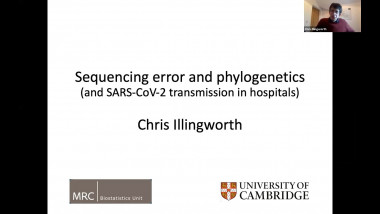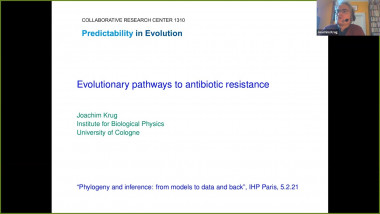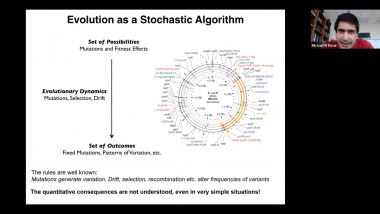Appears in collection : 2022 - T1 - WS3 - Mathematical models in ecology and evolution
Rapid evolutionary processes can produce drastically different outcomes when studied in well-mixed populations as compared to spatially explicit models. Such differences could be particularly relevant for so-called "gene drives", which can be engineered to spread genetic modifications through a population in just a few generations to induce population collapse. While laboratory experiments in mosquitoes and modeling in panmictic populations have shown that a gene drive can rapidly eliminate a population, it remains unclear if these results translate to natural environments where individuals inhabit a larger continuous landscape. In this talk, I will present our recent work on modeling the dynamics of gene drives in spatially continuous populations. I will show that the release of a suppression drive should often result in what we term "chasing" dynamics, in which wild-type individuals recolonize areas where the drive has locally eliminated the population. Despite the drive subsequently reconquering these areas, complete population suppression often fails to occur or is substantially delayed. This increases the likelihood that the drive is lost or that resistance evolves. Our results demonstrate that the population dynamics of suppression gene drives are determined by a complex interplay of genetic and ecological factors, highlighting the need for realistic spatial modeling to predict the outcome of drive releases in natural populations.















